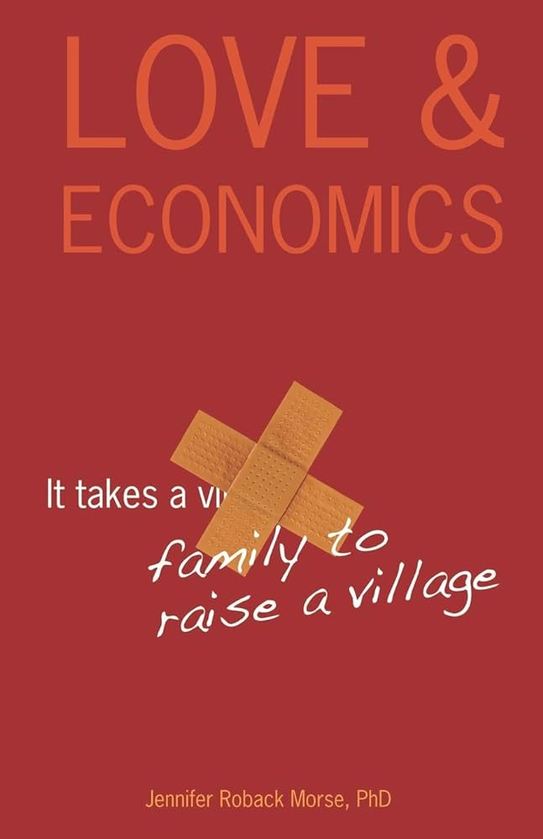The Suspicion Tax
In our society, we have a tendency to be suspicious of sacrifices, either the demand that one make sacrifices or the claim that someone else is actually making a sacrifice. We often look with suspicion upon the claim that someone actu- ally did something for someone else without a guarantee or even a reasonable expectation of something in return. We have great difficulty accepting an unrequited, unsolicited act of love from another person because we are afraid of being duped, of being used, of eventually being exploited. We want to know “What’s in it for you?” before we allow ourselves to be taken care of, before we accept love from another person. We are suspicious, too, about anyone who defends the proposition that making a sacrifice as an act of love is a desirable thing. We wonder:“What is this person’s agenda? How is my generosity going to be exploited?” We want a guarantee before we are willing to make a move.
I believe this suspicion arises because we have had too many experiences of having our trust and generosity abused. Too many politicians have asked us what we can do for our country only to exploit our patriotism for their own advan- tage. Too many clergymen have asked us to contribute to the church only to build their own mansions instead. Too many mothers have manipulated their children with guilt into doing things for their comfort rather than for the children’s lasting benefit. There is plenty of evidence for the cynical position that everyone is out for his own good despite his claims of and demands for sacrifice. In fact, we might be so bold as to say that the intuitive appeal of the economic analysis of self-interest derives largely from this experience. Adopting the cynical posture of homo economicus starts to seem sensible after enough experiences of betrayed gener- osity.
But there is a problem with acting entirely on the basis of these suspicions, however reasonable they might be. If these suspicions take over our minds and color our view of the human race, then there will be no room for love. We will not be in a position to accept an act of genuine generosity. This attitude increases the cost of accepting love. When the cost of something goes up, we usually expect that people will demand less of it.
An economist might reply that an increased price of something will usually call forth an additional supply. But we will not observe an increase in the supply of love when suspicious minds raise the cost of accepting love. Consider the likely response of the supplier, that is, the giver of love. The person performs a generous act or makes a profession of affection in perfectly good faith. Perhaps he neither explicitly nor implicitly demands reciprocity in kind. He is not try- ing to manipulate the other person into changing, even for the better. He just wants to do something nice for another person for no particular reason.
Now suppose this supplier of love receives the response, “You say you are doing something nice for me: what’s in it for you?” or “You say you love me: prove it.” This is not a response that is likely to call forth an additional supply. In fact, the person is most likely to give up or go away.
We hypothesized that the person did not expect anything particular in return. But he did need one kind of benefit for his efforts: he needed the experience of being visible to the other person. He surely wanted the other person to see him and his offers as they really were rather than as a cover for an agenda. But his attempt to perform a loving act failed because of the suspicion of its intended recipient. Suspicion can be viewed as a “tax” on love. Suspicion increases the costs of accepting love; that is, it increases the price paid by the receiver of love. But suspicion does not correspondingly increase the price received by the provider of love. Suspicion increases the cost of producing or giving love, so that less love is offered. A lower quantity offered, a lower quantity accepted, even when both parties could potentially have benefited: like all taxes, suspicion generates tremendous losses.
The problem flows both from people who are unreason- ably suspicious and from people who have, by their actions, given just reason for suspicion. But I believe there is another, more cerebral aspect to the problem. We live in a society that venerates science. One of the things science does best is to reject and verify hypotheses while adopting a relatively skeptical stance throughout the phases of experimentation and data gathering. The scientist can justify a noncommittal attitude. The scientist can reasonably demand proof.
But if a person carries these scientific attitudes into the realm of personal relationships, he can do great harm to himself and those around him. We cannot directly observe the interior of another person’s heart. If we remain skeptical until the proposition of love has been proven to us, we will necessarily remain skeptical forever. All the data will never be in. Even a person who loves us very much will certainly disappoint us or hurt us some of the time. The demand for proof where no proof is really possible destroys genuine love, for we more or less expect that eventually our hypothesis that no one really loves us will be verified. In effect, we place the entire human race on perpetual probation. Perhaps this begins to account for the indescribable loneliness that is so much a part of modern life.
So, we see how the supply side of this good called love bears some similarities to ordinary economic goods. Love is costly to give or produce or supply. Some of these costs are material costs that can be readily observed. Many of the other costs of giving love are purely interior, intellectual, or psychological. Because of all these costs of loving, the world is not necessarily filled with loving people,even though love is indeed a valuable good. It is reasonable to believe that the greater the perceived cost of love, the less of it will be given.
Our discussion of the suspicion tax suggests that there is something very counterintuitive about love once we begin to analyze it. Suspicious people resist being loved. The truth is that many people resist being loved, at least some of the time. Usually, economists think that when someone gives us a good thing, we accept it eagerly.
When people refuse a good, it is because it is, in some way, costly for them to accept it. We need to look at what we might somewhat irreverently call the demand for love. Our analysis of the costs of loving began by asking what we mean by “more love.” These same components of love will help us understand how it might be costly to be the recipi- ent of love.
The Costs of being Loved
An Increase in the Accuracy of Perception
An increase in the accuracy of another person’s percep- tion of us is not an unmixed blessing. Sometimes, we are delighted when another person sees us as we really are. We are enchanted when someone finally recognizes our good qualities or sees our skills and achievements. When seeing us accurately means seeing our good qualities more clearly, it is certainly easy for us to accept. It is not costly to receive love that is based on an accurate knowledge of the parts of us that make us proud.
But every person has bad points as well as good, faults as well as strengths. In any relationship of any duration and intensity, these less gratifying parts of ourselves eventually emerge. When the other person sees more of our faults more accurately, it is a different story.
Sometimes we have the experience that another person who knows us well can “see through us.” He can see us clearly in spite of our best efforts to conceal ourselves. Some- times this experience is deeply comforting. Other times the experience is profoundly unnerving, especially when we are embarrassed about the other person’s vision. We have the sense that there is no place to hide in the presence of such a person. We are having a kind of “moment of truth” that we were not prepared for.
How we react depends in part on our own courage. But it also depends on the reaction we expect from the other person. I argued earlier that a true “increase” in love needs to include an increase in all three of the components. The cost to us of accepting an increase in the accuracy of the other person’s vision depends on what we expect him to do with that information. If the person in his clear vision continues to stand beside us, in solidarity with us, we might be willing to reveal ourselves more fully and entrust ourselves to him more completely. If the person sees our faults, recognizes them as faults, and is willing to help us see our way through to positive change, we might be more willing to accept his perception of us.
By contrast, if the person’s increased accuracy of vision leads him to reject us, we would be hard-pressed to describe him as loving. At the same time, this reaction from him would make it more difficult for us to accept his vision of who we are. We will be more likely to argue the facts with him, claim that we do not in fact possess those particular faults, even if we do. If the person is not fully loving, we are more apt to find it costly to accept even the components of love that he can give.
If the person’s increased knowledge of us leads him to redefine what is good, we might actually be more willing to accept his vision. It would not, however, be as great a good for us. For instance, suppose a son tells his father that the fa- ther has a drinking problem. It would not be unusual for the father to resist hearing this information. He might be more willing to accept it if his son would modify his statement by saying that being an alcoholic is not so bad and by redefining the drinking issue for him,so that it does not appear in so bad a light. This statement might indeed make it less costly for the father to hear the truth about his acts, but only because his son has been less than truthful about their meaning. The son sees his father clearly but has not increased his father’s desire for positive change. Strictly speaking, a person telling us an unpleasant truth about ourselves is giving us a good. He may not necessarily be doing it as an act of love, but the truth is still a good to us. It is just that this particular good may be too costly for us to accept.
The example suggests that some attitudes significantly increase the costs of accepting an increase in the accuracy of a person’s vision of us. Every human person is imperfect, yet everyone wants to think well of himself. No one enjoys hav- ing attention called to his or her faults. There are a variety of strategies that people use to help manage the tension caused by the gap between our actual condition and the condition in which we would like to imagine ourselves.
One strategy is to redefine goodness so that it includes the imperfect act the person has already decided to perform. In our example, the son tried to redefine a drinking problem to be less of a problem. But this strategy is not based on reality. The father may still have car accidents or get liver disease no matter how his son helps him redefine the ques- tion of drinking.
Some people have an implicit philosophy that any negative information about themselves signifies that they are somehow defective. They seem to believe that the natural condition of the human person is to be without problems, without faults, without anxiety. Some interpret evidence of imperfection to mean that they are mentally ill or that they had a defec- tive upbringing. A few years ago, it was almost fashionable to claim to be “codependent” or that one’s “family of origin was dysfunctional.”
Others have a more spiritual approach. These people be- lieve that a person is either saved or not saved. They know perfectly well that everyone is imperfect. Yet being among the saved is supposed to regenerate the person, so that one is able to live a better life. Evidence of one’s own imperfection might mean that one is not among the saved. People with this view sometimes lose sleep wondering whether they are among the saved.
One problem with all of these approaches is that they make it more costly for us to hear the truth about our own imperfection. This type of personal philosophy raises the stakes, so to speak, in admitting to ourselves or to others that we are less than perfect. If a person points out to us one of our faults, we may have a hard time accepting this information, even if it is the truth (maybe especially, if it is the truth). It takes almost superhuman love and solidarity on the part of the other person, to remain in friendship while conveying this kind of unpleasant information.
There is an alternative attitude that lowers the cost to us of receiving negative information about ourselves. We can recognize imperfection as a natural part of the human condi- tion. When someone points out a fault, we can use it as an opportunity for growth, as it was perhaps intended to be. We can see this as evidence of our membership in the human race. This look at our own frailty can be an opportunity to really connect with the other frail human beings around us. This is very difficult and demonstrates clearly that accepting this component of love can be costly to us.
You can purchase your own copy of Love and Economics from the Ruth Institute store.




















